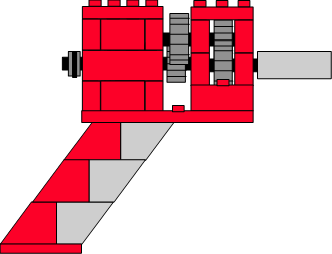Procedure and phases of LearnFactory 5.0
The goal of the game is for the participants to refine and advance a fictitious factory in an iterative and experience-based manner, thus increasing performance, flexibility and employee satisfaction. The gamified elements allow for learning from mistakes without any of the real-world risk factors.
Starting from a classic Taylorist organization, the company is gradually redesigned according to the market situation. The participants develop an intuitive understanding of the requirements and opportunities offered by process optimization.
For one day of the seminar, each participant takes on a certain role in the company. After a short introduction to the company, to the production task and to the individual roles, the first production phase begins.
After the first weaknesses have been identified, production is halted. Under the guidance of an experienced moderator, the team analyzes the results, develops measures and implements them immediately in the process. These measures are validated and expanded on in further production phases.
During the discussion, the participants will learn how the individual perspective can be shifted towards a more wholistic view. Reflections are initiated, such as:
- Do we not face similar challenges?
- How can I apply the knowledge and experience I have gained in our company?
- What behaviors and basic rules should we apply in our digital transformation and which ones should we avoid?
The required number of production and project cycles depends on the learning objectives. Experience shows that three to four cycles with at least two lessons and corresponding reflections are necessary. This corresponds to a seminar duration of approximately four to six hours.
In competitive situations between several groups, we have had some very good experiences with team building and the associated insights. The objective of achieving a better performance than the peer group often leads to especially creative ideas, bonds employees together, and teaches them how to deal with unexpected situations of pressure.
 Fraunhofer Institute for Production Systems and Design Technology
Fraunhofer Institute for Production Systems and Design Technology